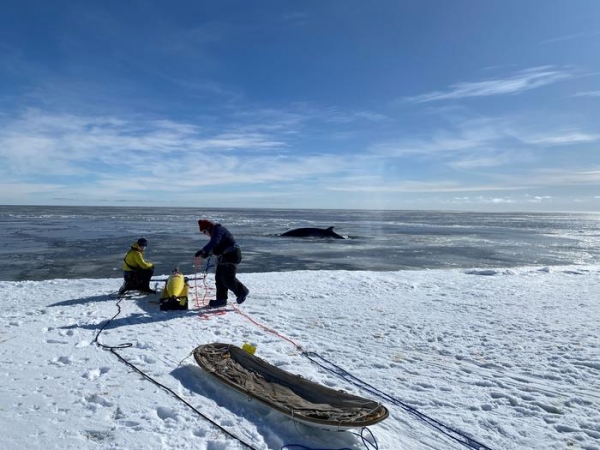New research reveals for the first time how a major Antarctic ice shelf has been subjected to increased melting by warming ocean waters over the last four decades.
Scientists from the University of East Anglia (UEA) say the study - the result of their autonomous Seaglider getting accidentally stuck underneath the Ross Ice Shelf - suggests this will likely only increase further as climate change drives continued ocean warming.
The glider, named Marlin, was deployed in December 2022 into the Ross Sea from the edge of the sea ice. Carrying a range of sensors to collect data on ocean processes that are important for climate, it was programmed to travel northward into open water.
However, Marlin was caught in a southward-flowing current and pulled into the ice shelf cavity where it remained, with its sensors on, for four days before re-emerging. During this time the ‘lost’ glider completed 79 dives, taking measurements of the water within the cavity to a depth of 200 metres, right up to base of the overlying ice shelf.
Read more at University of East Anglia
Image: The Seaglider Marlin was deployed into the Ross Sea from the sea ice. (Credit: Walker Smith)
Sci/Tech Climate Top Stories
